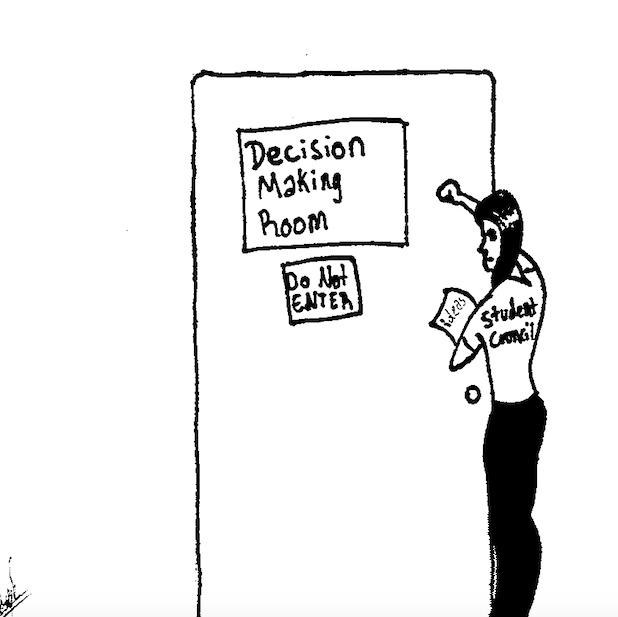A call for teamwork
March 11, 2016
With major change comes an even larger reaction. That’s most likely why the reaction to the fact that both the middle school and the high school will have overhauled schedules starting next year has been met with opinions ranging across the spectrum.
Many students disagree on whether the block schedule had to be changed and whether we needed some classes every day. It is essentially a consensus, however that as students, the ones who reap the benefits and suffer the consequences of the schedule changes, we should have had more input in the changes.
The members of Student Council, who act as representatives of the high school student body on certain schoolwide issues and policy changes, were not only never consulted by administrators, but were not even informed of the schedule changes.
The changes themselves and the dialogue surrounding them are not even a remotely new subject for the school. Since the Dec. 2014 announcement that the sixth grade would move to the Upper School by the 2016-2017 school year, the school knew that there would be changes to both schedules because of a redesign.
Due to this, a 10-person committee of teachers and administrators dedicated to creating a new schedule was formed at the beginning of the current school year. This means that there had been research and actual drafting of schedules for over five months and ideas for a new schedule for well over a year, without notifying or asking input from Student Council.
There were focus groups to discuss various aspects of the middle school redesign, including schedule changes. These focus groups, however, only had input on middle school changes, not for high school.
The purpose of Student Council is to represent the best interests of the student body during times like this. Important decisions that strongly affect students cannot be made without substantial input from students, or at the very minimum, informing students earlier that changes are being discussed and made.
The administration believes that an abundance of student input would have been detrimental to the process due to the complexity of concocting two new schedules. We believe that it is beneficial to have some sort of line of communication between administrators and students, whether it be through Student Council, or with the student body directly.
We strongly affirm that the students should have been informed of the impending changes and given a larger voice. While the changes are likely final, the school needs to see that students want to be heard and to be kept in the loop. This is especially true when changes are as impactful as altering the current schedule. We believe that the school should take our thoughts into consideration when making changes, big or small, in the future.
The administration is not wrong that some decisions are best when made without student input. However, we believe that there needs to be more teamwork between students and administrators. Decisions that do not directly impact students’ daily routine, such as the new security measures which did not involve student input, do not need the “help” of students, but a change like the overhaul of the schedule does.
As students, our collective voice will only be heard if we speak. We cannot simply let decisions pertaining to us be made without our voices being acknowledged. We must speak up and express our thoughts and opinions as students no matter the situation or decision.
In times like these, when we feel as if our opinions were overlooked, we must take the situation at hand and make the best of it. This does not mean going to the offices of administrators and complaining about the new schedules. Instead, it is crucial that we work with those in power in order to close the gap between administrators and students. This will enable us to have our voices heard in the form of Student Council more often, and to stay in better communication with those above us.







